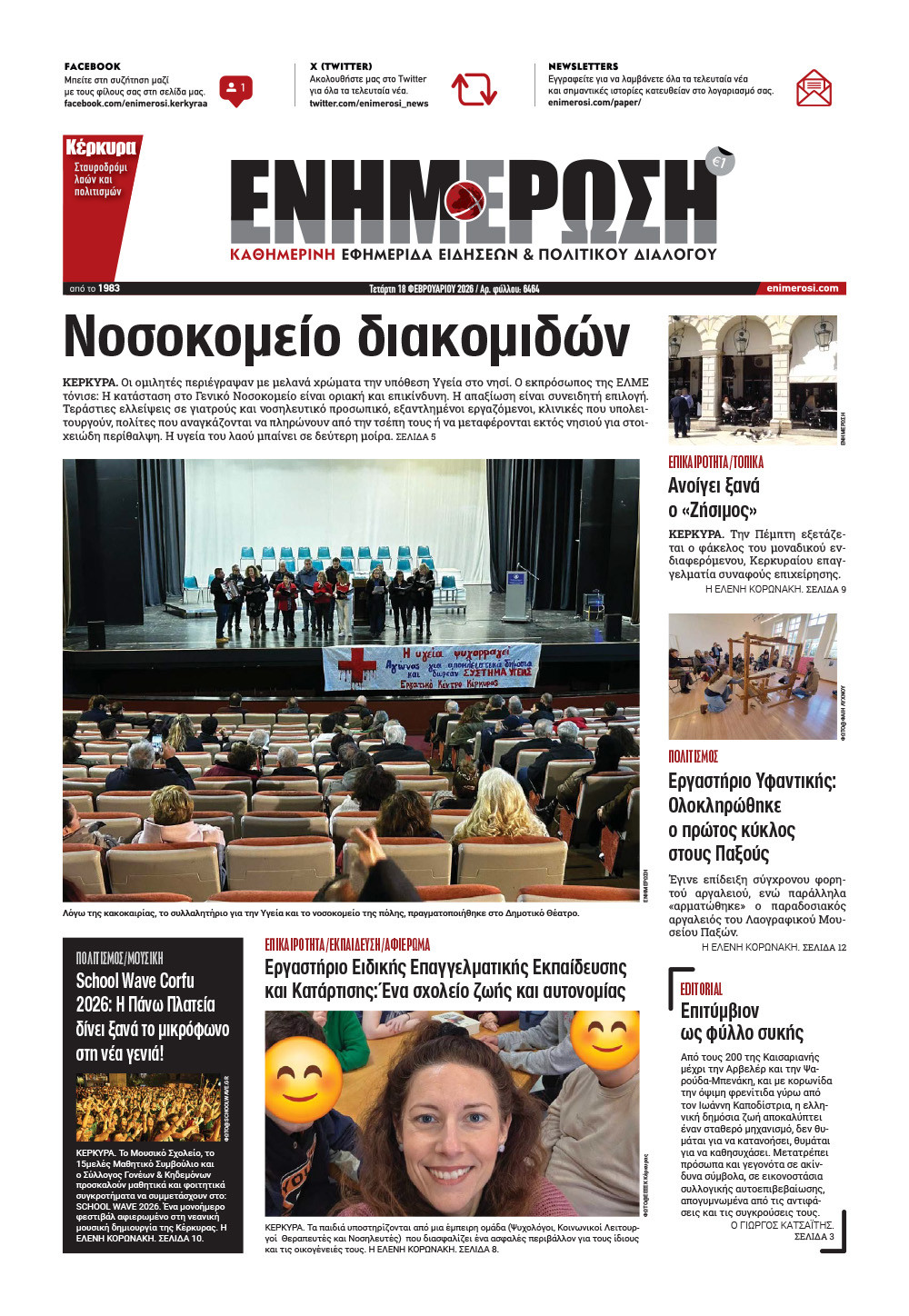Tourist season starting with personnel shortages

CORFU. Pericles Katsaros: "The procedures for work visas for migrant workers from third countries are time-consuming."
One of the main challenges for this year is finding personnel in tourism and hospitality, as once again, the island's tourist season begins with significant shortages in almost all key positions.
Cooks and their assistants, maids, waiters, cleaners, receptionists, dishwashers and general workers are in demand, yet the positions are not being filled.
The response to advertisements and personnel recruitment platforms remains low, Corfu tourism professionals tell Enimerosi. They even estimate that inevitably businesses will have problems this year as well, affecting the provision of services, as happened last year. Hotels reached the point of not operating a second restaurant or bar because of a lack of human resources.
"The season will start with shortages in personnel," Spyros Rokas, Vice President of the Corfu Hoteliers Association, told Enimerosi. "It's a given. In hotels, the first specialty in short supply is chefs, followed by waiters, maids, cleaners, dishwashers and general workers.
"Businesses will inevitably have to scale back their services to cope," he said. As he explained, a deterrent to attracting new labour to tourism is the seasonality of the profession and the short duration of unemployment benefits, which only last for three months.
Meanwhile, the countdown is proceeding for the opening of hotels and rental accommodations, as some are expected to open at the end of March to welcome guests, with the majority expected to start operating from mid-April onwards.
70 additional relocations of workers
Although a few days ago, an additional 32,517 relocations of workers from third countries were approved by a ministerial decision, which has already been published in the Government Gazette, in order to meet the needs of employers mainly in the agricultural sector, construction, as well as in tourism and catering, the problem persists.
In the new ministerial decision that complements the one issued in April 2023, an additional 70 positions for relocated workers (45 for salespersons in catering establishments and 25 for kitchen assistants) are approved for the Ionian Islands Region. With the ministerial decision of 2023, the maximum limit of residence permits for last year and this year was set for our Region at 3,836 positions, of which 2,950 were for seasonal work (gardeners, kitchen assistants, dishwashers, maids, etc.).
However, as the President of the Corfu Federation of Tourist Accommodation Owners, Pericles Katsaros, told Enimerosi, the procedures for these workers to come are time-consuming, resulting in them coming for work with significant delays even though the needs are greater.
"The competent service for work visas is very slow, resulting in a lot of valuable time being lost. We submit our application to the Decentralised Administration, which is then transferred to the Ministry of Foreign Affairs and to the responsible Embassy each time, which notifies the worker and starts the process for the work visa. However, a significant amount of time passes until they come for work," Mr. Katsaros stated.
Catering
The problem is evident in the catering sector, especially in businesses that operate only for the season. The President of the Corfu Catering Association, Vassilis Vassilakis told Enimerosi that 70% of seasonal restaurants have a serious problem finding personnel, unlike those that are open year-round and have stable staff, covering their needs to a large extent.
"In all commerce and catering, there is a very big problem of personnel shortage not only in tourist areas but also in inland areas,"he said. "They cannot find staff to work, and this will affect the provision of services, as opening hours and operating days will be limited not only in catering but also in other tourism sectors."
As he explained, since the catering sector had closed down during the pandemic, many workers in the industry sought employment elsewhere, resulting in shortages.
MARIA BAZDRIYIANNI












